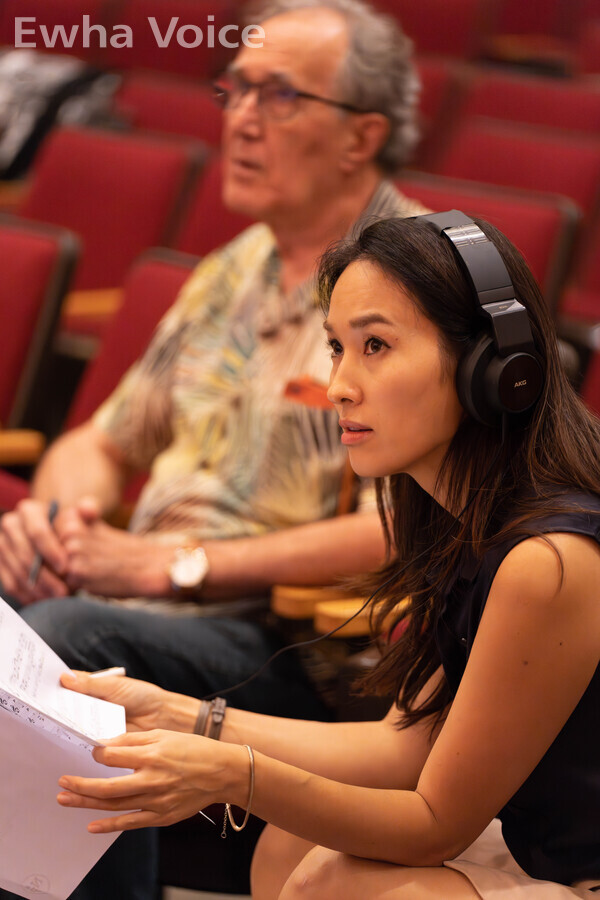
In a fast-paced world, it is easy for individuals to overlook their own history, while some remain to try their best in informing the present generation of the past. South Korean filmmaker Jinyoung Lee has broken the seemingly tedious preconceptions of history to explore the 120 years of inspiring Korean immigrant history to Hawaii, in efforts to share the fascinating and historically valuable story of the Korean community.
After graduating from the Division of Communication & Media at Ewha in 2004, Lee made use of her major and worked at Allure as a magazine reporter. However, she decided to move to Hawaii after her marriage, being attracted by the immense beauty of Hawaiian scenery that was different from Korea, where she has lived for her whole life.
Lee continued her career in mass media as a reporter for The Korea Times Hawaii. As a Korean living in abroad, she also had opportunities to learn about the Korean immigrant history to Hawaii, which began a long time ago in 1902. She had first considered the state only as an appealing tourist spot, but soon realized that these islands were so much more than their external beauty. Consequently, she decided to start a new path as a filmmaker to share not only the nature's scenery at Hawaii but also the history contained in it with the present generation of Korea. Due to her past experiences working in media, Lee was able to overcome the obstacles she faced as a newly debuted filmmaker.
Korean immigrants had officially arrived in Hawaii in 1903 from Incheon, South Korea, working for sugarcane and pineapple plantations for settlement purposes. Official immigration ended in 1905 due to Japanese Imperialism’s deprivation of Korean diplomatic rights.
“It is difficult to hear the stories of people who experienced this issue in person, because it took place so long ago,” Lee said. “Luckily, their descendants still remained, so I decided to conduct five different interviews to learn about Korean immigrant history in depth.”
The interviews are featured in Lee’s first and most well-known film called “Words of Wisdom from the Rainbow State,” which includes five different oral interviews of the descendants of Korean immigrants.
Lee recalled her interview with Harry Kim, the former mayor of Hillo, Hawaii, who is the youngest among eight children from a Korean immigrant family. She explained how valuable it was to have a direct and meaningful conversation with a descendant of the early immigrants as most of them passed away, which was also a chance to feel the warmth of the Korean community and the troubles our ancestors faced in the 1900s.
“As it was my debut piece as a filmmaker, due to budgetary restrictions, it was hard to contact diverse interviewees," Lee explained. “I was also worried about making mistakes and losing objectivity while creating the film.”
However, after meeting with Kim, she was able to gain insight in creating a vivid oral record of the immigrants, which contains not only cultural but also significant academic value.
Lee is currently preparing for a new film that will be screening in South Korea in June, titled “Songs of Love from Hawaii,” also featuring various episodes from immigrant history. The distinct characteristic of this film is that Lee made use of classical music to enhance the audience’s understanding of the purpose of the film. She is also planning to open a concert by collaborating with a local orchestra in the United States with the expectation that music would make Korean immigrant history more accessible to the present generation.
In terms of the most important value of creating such films, Lee mentioned the connection between the past and present. Lee stated that history not only helps us learn about the past but also provides an opportunity for us to improve the present state and remember one’s roots and carry on.
“My personal goal as a filmmaker is sharing the stories of Korean immigrants in an easy and accessible way to the present generation, including university students,” Lee stated. “I hope awareness towards such immigrant history increases within the South Korean community.”

